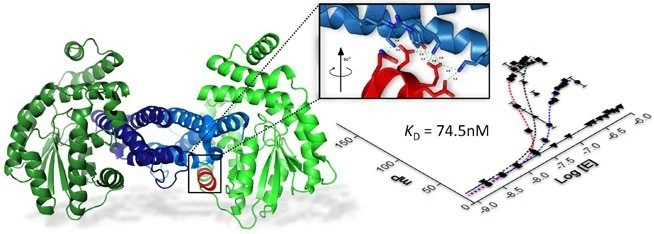HTS in Silico, ADME, Chemiczna Optymalizacja IBB PAN
Instytut Biochemii i Biofizyki PAN (IBB PAN)
Institute of Biochemistry and Biophysics Polish Academy of Sciences (IBB PAS), established in Warsaw in 1957, has state-of-the art laboratories for highly specialized studies in the fields of molecular biology, biophysics, genomics, transcriptomics and proteomics as well as computer modeling and bioinformatics.
Institute of Biochemistry and Biophysics PAS invented several therapeutic technologies developed from fundamental research carried out in its laboratories. These technologies are based on novel mechanisms of pharmacological intervention, such as – natural miRNA molecules, peptidomimetics, vaccines or small-molecule protein correctors, and therefore belong to the highest class of innovative medical solutions. The described solutions may contribute to the development of new drugs for the diseases, which either have no effective therapy currently or the available therapeutics are insufficient and/or carry significant adverse effects. At the moment, activities of the Institute of Biochemistry and Biophysics PAS are focused on the improvement of developed therapeutic molecules in the treatment of autoimmune, oncological and COVID-19 diseases, various conditions related to the inflammatory processes, resistance to antibiotics, influenza virus infections and cystic fibrosis.
The modern and sophisticated research equipment including hi-tech core facilities, and the top-caliber scientific expertise of its research staff members enable the Institute to advance and explore various fields of biology, medicine and pharmacology, agro-food industry and biotechnology, with ultimate goals focused on fundamental research as well as human and animal health and wellbeing.
The Institute is involved in over 130 national and international research projects funded both locally and by EU. IBB PAS is a member of one of the largest infrastructural scientific projects in Poland: the “Center for Preclinical and Technological Research” CEPT, as well as a member of the “Biocentrum Ochota” consortium in Warsaw. IBB PAS has three projects included on the list of the Polish Roadmap for Research Infrastructures – “ELIXIR – a system for recognition of complex biological systems” (leader), PolarPOL.Polish Multidisciplinary Laboratory for Polar Research (partner) and POL-OPENSCREEN (partner & partner site in EU-OPENSCREEN
In POL-OPENSCREEN, IBB is building the
Platform for in silico screening, ADME and lead compound structure optimization
Our skills:
Our group uses a wide range of bioinformatics approaches and develops its own unique bioinformatics tools to solve various biological problems and propose novel therapeutic molecules.
The theoretical predictions in our projects have already been confirmed experimentally.
Small molecule exploration and design with emphasis on protein-protein interaction inhibitors, including epigenetic modifiers, drugs against basic defect of cystic fibrosis, exosome and mTOR/PI3K modulators.
Our achievements:
We have proposed several therapeutic technologies based on novel pharmacological molecules, such as:
1. Natural miRNAs – specific plant-derived miRNAs are used to interact with mRNA coding protein FAN (Factor Associated with Neutral Sphingomyelinase Activation) and thus negatively regulate its expression. By this means plant-derived molecules decrease organism inflammatory responses – reduces level of pro-inflammatory proteins (e.g. CXCL2, IL-6) and proliferation/recruitment of leukocyte population. Presented molecule may be used to treat known autoimmune diseases and/or various conditions related to the inflammatory processes.
2. Inhibitors of protein-protein interactions correcting the basic defect of ∆F508-CFTR in cystic fibrosis. We applied molecular modeling methods to propose a unique mechanism of pharmacological intervention and to discover four new drug-like compounds, which have been proven by series of experimental studies (including human bronchial primary epithelial cells derived from CF patients (CF‐HBE) as well as in vivo analysis on CF animal model – ∆F508/∆F508 mice). Identified molecules are of a great potential to become good candidates for future drug(s) against basic defect causing CF.
3. We developed a novel screening procedures which allow a sufficient degree of flexibility for the analysis of a large database of compounds. This methodology was applied to find the first non-nucleotide DNA methylation inhibitors. Two of them have been tested experimentally and proven to be efficient especially against common cancer types such as leukemia and colon cancer. One of the compounds, RG-108 is commonly used today to reactivate epigeneticaly silenced tumor suppressor genes, and enhance the reprogramming efficiency of induced pluripotent stem cells.
The developed solutions may provide alternative therapeutics for human diseases for which there are no effective drugs or the available ones are insufficient, very expensive and/or carry numerous of side effects.

Our services:
1) A wide range of bioinformatics services provided by experienced experts.
- Design of protein-protein interaction inhibitors (including peptides, peptidomimetics, low molecular weight compounds) and miRNA based modulators of metabolism
- Virtual screening of low molecular compounds and identification of active substances.
- Design and optimization of the of bioactive lead compounds structures
- Structure predictions of proteins – therapeutic targets
2) Design and custom synthesis of chemical compounds and peptides. Purification, identification and characterization of organic compounds
3) Production of peptide hormones, protein domains, model molecules and peptide libraries using solid phase synthesis
4) Rich equipment and highly qualified staff performing physicochemical measurements and ADME profiling:
-
- Aqueous solubility
- Determination of hydrophobicity
- PAMPA
- Caco-2 permeability
- Chemical stability
- Determination of pKa (by spectrophotometric methods and potentiometric titration)
- Stability of low molecular weight complexes (KD ∆Gbind)
- Interactions involving fluorescent and/or chiral molecules (KD ∆Gbind)
- Stability (KD) for a variety of macromolecular complexes including proteins (MST)
- Stability of protein-ligand complexes (LabelFree MST)
- Thermal Shift Assay for protein-ligand interactions (NanoDSF)
- Thermodynamic description (∆Gbind, ∆Hbind., ∆Sbind) of macromolecular complexes (NanoITC)
- Thermal unfolding of biomolecules (NanoDSC)
Kinetics of macromolecular interaction (Stopped-flow)
Identification and characterization of organic compounds (FT/IR spectrometer, polarimeter)